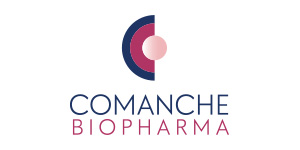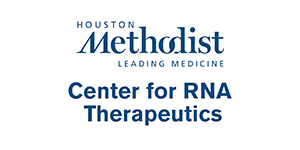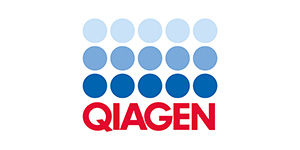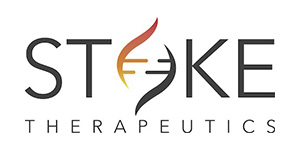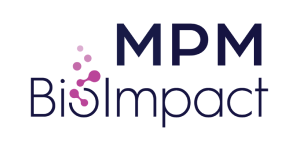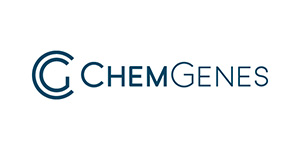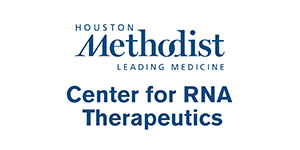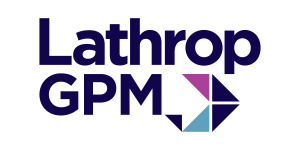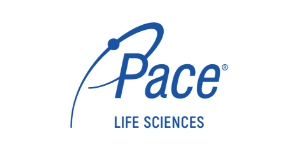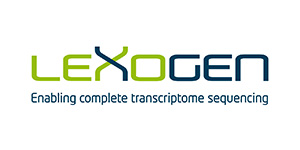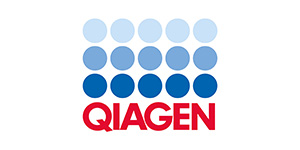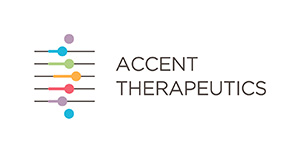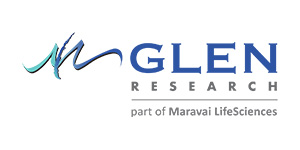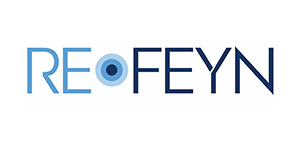- Need Technical Assistance? rnatx2022support@getvfairs.io
June 26, 2024 - June 28, 2024
Omar Abudayyeh
Omar Abudayyeh
Omar Abudayyeh is an Investigator at Brigham and Women’s Hospital and member of the faculty at Harvard Medical School where he directs a lab developing next-generation gene editing, gene delivery, and synthetic biology technologies using protein engineering and artificial intelligence and applies them towards new therapeutics and the study of aging. He previously was a McGovern Fellow at MIT where he directed his own research group and before that was at Harvard Medical School and MIT as a graduate student in Feng Zhang’s lab at the Broad Institute, where he earned a Ph.D. researching novel CRISPR enzymes for genome editing, therapeutics, and diagnostics. He is a pioneer in the gene editing space as an inventor on dozens of patents and patent applications relating to gene editing and diagnostic innovations, as well as over 30,000 citations on more than 40 peer-reviewed articles in journals like Nature, Science, and Cell. He is also co-founder of Sherlock Biosciences, Proof Diagnostics (acquired), and Tome Biosciences, which are commercializing CRISPR-based diagnostics for healthcare and at-home testing, as well as other stealth starts ups in the gene and RNA therapy space, which have collectively raised hundreds of millions. Dr. Abudayyeh has been recognized as Technology Review Innovators Under 35, Bloomberg New Economy Catalyst, Endpoints 20 under 40 Next Generation of Biotech Leaders, 2022 Termeer Scholar, 2018 Forbes 30 under 30, Business Insider 30 under 30, a 2018 TEDMED Hive honoree, and a 2013 Paul and Daisy Soros Fellow. Dr. Abudayyeh graduated from MIT in 2012 with a B.S. in mechanical engineering and biological engineering, where he was a Henry Ford II Scholar and a Barry M. Goldwater Scholar. He also spent two years studying towards an MD at Harvard Medical School.
Angela Brooks
Angela Brooks
Professor, Biomolecular Engineering,
UC Santa Cruz
Dr. Angela Brooks is a Professor of Biomolecular Engineering at the University of California, Santa Cruz. She is also an Affiliated Faculty of the UCSC Center for Molecular Biology of RNA and the UCSC Genomics Institute. She was a Pew Scholar in the Biomedical Sciences in 2018. She has received multiple awards for her mentoring including the 2018 Women in Science and Engineering Award as part of the UC Santa Cruz Chancellor’s Achievement Awards for Diversity, the 2022 SACNAS Outstanding Research + Professional Mentor Award from the Society for Advancing Chicanos/Hispanics & Native Americans in Science (SACNAS), and a 2023 Koret Scholar Mentoring Award. The Brooks lab works on developing computational and experimental approaches to study cancer mutations that cause changes in the transcriptome, particularly through RNA splicing.
Saumya Das
Saumya Das
Associate Professor of Medicine,
Harvard Medical School
Saumya Das, MD, PhD Is An Associate Professor Of Medicine At Harvard Medical School, A Faculty Member Of The Cardiac Arrhythmia Service And The Director Of The Resynchronization And Advanced Cardiac Therapeutics Program At Massachusetts General Hospital.
Dr. Das completed his undergraduate training at Harvard College, graduating summa cum laude in Biology. He completed his MD-PhD training at Harvard Medical School (in the Health Sciences and Technology pathway) with his PhD in neurobiology. Following that, Dr. Das completed his residency in internal medicine at MGH, and fellowship training in cardiovascular disease and clinical cardiac electrophysiology also at MGH. He completed a research post-doctoral fellowship with Dr. Rosenzweig, studying signaling pathways in cardiac electrical remodeling and started his own laboratory at Beth Israel Deaconess Medical Center in 2011. He was recruited to MGH in 2016. His research has focused on signaling pathways in electrical and structural remodeling in models of heart failure and cardiometabolic disease with a focus on extracellular vesicles and their cargo RNAs as biomarkers and mediators of intercellular signaling.
Dee Datta
Dee Datta
Co-founder and CEO, Switch Therapeutics
Dee Datta, PhD is Co-Founder and CEO for Switch Therapeutics. She received her PhD from Caltech and MBA from Stanford University Graduate School of Business. Before Switch, Dee was the Chief Business Officer at XOMA. Prior to that, she served as Vice President, Corporate Development at Forty Seven, Inc., where she managed business development, strategy and company financings. Earlier in her career, she was a venture capitalist at The Column Group and Longitude Capital. As an investor, she has experience in alternative financing strategies, such as royalty monetization, in addition to formation and management of portfolio companies. When not at work, Dee enjoys traveling and exploring the world with her daughter and husband.
Jennifer Doudna
Jennifer Doudna
Nobel Laureate in Chemistry,
Professor, Li Ka Shing Chancellor’s Chair in Biomedical and Health Sciences, UC Berkeley
Dr. Jennifer Doudna is the Li Ka Shing Chancellor’s Chair and a Professor in the Departments of Chemistry and of Molecular and Cell Biology at the University of California, Berkeley. Her groundbreaking development of CRISPR-Cas9 as a genome-engineering technology, with collaborator Emmanuelle Charpentier, earned the two the 2020 Nobel Prize in Chemistry and forever changed the course of human and agricultural genomics research.
This powerful technology enables scientists to change DNA — the code of life — with a precision only dreamed of just a few years ago. Labs worldwide have re-directed the course of their research programs to incorporate this new tool, creating a CRISPR revolution with huge implications across biology and medicine.
In addition to her scientific achievements, Doudna is a leader in public discussion of the ethical implications of genome editing for human biology and societies, and advocates for thoughtful approaches to the development of policies around the safe use of CRISPR technology.
Doudna is an investigator with the Howard Hughes Medical Institute, senior investigator at Gladstone Institutes, and the founder of the Innovative Genomics Institute. She co-founded and serves on the advisory panel of several companies that use CRISPR technology in unique ways.
She is a member of the National Academy of Sciences, the National Academy of Medicine, the National Academy of Inventors, and the American Academy of Arts and Sciences. Doudna is also a Foreign Member of the Royal Society, a member of the Pontifical Academy of Sciences, and has received numerous other honors including the Breakthrough Prize in Life Sciences (2015), the Japan Prize (2016), Kavli Prize (2018), the LUI Che Woo Welfare Betterment Prize (2019), and the Wolf Prize in Medicine (2020). Doudna’s work led TIME to recognize her as one of the “100 Most Influential People” in 2015 and a runner-up for “Person of the Year” in 2016. She is the co-author of “A Crack in Creation,” a personal account of her research and the societal and ethical implications of gene editing.
Steven Dowdy
Steven Dowdy
Professor,
University of California San Diego
Dr. Steven Dowdy is a Professor of Cellular & Molecular Medicine at UCSD School of Medicine. He received his PhD in Molecular Genetics from the University of California Irvine with Prof. Eric Stanbridge and was a Damon Runyon Postdoctoral Fellow at the Whitehead Institute at MIT with Prof. Bob Weinberg. In 1994, Dr. Dowdy joined Washington University School of Medicine as an Assistant Professor and an Investigator of the Howard Hughes Medical Institute (1994 - 2012). He moved his lab to UCSD in 2001. His early research focus ed on understanding the molecular basis of G1 cell cycle deregulation during oncogenesis by RB, p16 and cyclin:Cdk complexes, determining that cyclin D:Cdk4 complexes activated RB by mono - phosphorylation. His more recent work focused on the synthetic chemi stry and delivery of siRNAs to treat cancer, including the first synthesis of bioreversible, charge neutralizing phosphotriester RNAi prodrugs. His current work is focused on addressing the rate - limiting step of endosomal escape that impedes delivery of all RNA therapeutics by synthesis of novel endosomal escape domains. Dr. Dowdy sits on five biotech Science Advisory Boards, was previously an elected board member of the Oligonucleotide Therapeutics Society (OTS) (2015 - 2021) and is co-founder of Clear Skies Bio, which is focused on RNA delivery
Jonathan Gootenberg
Jonathan Gootenberg
McGovern Fellow, Principal Investigator, MIT
Dr. Jonathan Gootenberg is a member of the faculty at Harvard Medical School and an investigator at Beth Israel Deaconess Medical Center. Dr. Gootenberg draws from fundamental biological insights to engineer new molecular tools, with a focus on methods that leverage programmability across biological scales. These technologies, including CRISPR-mediated genome and transcriptome perturbation and non-destructive cellular sensing, allow for unprecedented manipulation and profiling of cellular states in the body, and have myriad applications in basic science, diagnostics, and therapeutics. These technologies have been adopted by multiple biotechnology companies, several of which Dr. Gootenberg has co-founded.
Previously, Dr. Gootenberg led an independent research group at MIT as a McGovern Fellow. He received his PhD in Systems Biology from Harvard University, conducting research with Aviv Regev and Feng Zhang at the McGovern Institute and Broad Institute of MIT and Harvard, and earned his bachelor’s degree in mathematics and biological engineering at MIT. He has been honored with awards such as Forbes 30 Under 30, Technology Review 35 Under 35, Endpoints 20 Under 40, and as a scholar of the Termeer Foundation.
Lorna Harries
Lorna Harries
Professor of Molecular Genetics at the University of Exeter, UK
Professor Lorna Harries is co-founder, director and Chief Scientific Officer at SENISCA Ltd., a spin out company from the University of Exeter Medical School, founded on the back of 10+ years of academic research from the Harries lab. Lorna gained her PhD from University College London in 1994 and holds a personal chair in Molecular Genetics at the University of Exeter Medical School. Lorna also heads the Exeter Animal Free Research Centre of Excellence (ARC 2.0) funded by Animal Free Research UK. The Harries lab have interests in -omics approaches to the study of ageing and age-related disease processes in humans, and her work takes a genes to systems approach, ranging from ‘big data’ analyses to detailed individual molecular analysis of particular genes. Her team were the first to report dysregulation of alternative splicing as a new, and druggable, hallmark of ageing; a finding which is now being developed as the basis for a new generation of interventions to treat the underpinning causes, not just the symptoms, of age-related chronic disease.
Tracy Johnson
Tracy Johnson
Professor of Molecular, Cell and Developmental Biology
Cecilia and Keith Terasaki Presidential Endowed Chair
Howard Hughes Medical Institute Professor
Dean, Division of Life Sciences at UCLA
Dr. Tracy Johnson earned her Ph.D. in Molecular and Cell Biology from UC Berkeley and was a Jane Coffin Childs postdoctoral research fellow at the California Institute of Technology (Caltech). She began her first faculty position at UCSD in and moved to UCLA to join the faculty in 2013.In 2020, Dr. Johnson was appointed Dean of Life Sciences at UCLA. Her research lab laboratory focuses on understanding mechanisms of gene regulation, particularly RNA splicing, chromatin modification and the intersection between these reactions.
In addition to her activities at UCLA, Dr. Johnson plays a leadership role in a number of professional societies. She is the immediate past President of the Genetics Society of America and has served on the RNA Society Board of Directors, the National Cancer Institute Board of Scientific Advisors, chair of the Molecular Genetics NIH study section, and chair of the Executive Board for the Society of HHMI Professors. Dr. Johnson currently serves on the Scientific Advisory Board for AlltRNA, a tRNA Therapeutics Company, and is a trustee of the Cold Spring Harbor Laboratory.
Dr. Johnson has been the recipient of numerous awards. These include the NSF CAREER Award, the Presidential Early Career Award for Scientists and Engineers (PECASE), and in 2014 she was named an HHMI Professor. In 2022 Dr. Johnson received the Ruth Kirschstein Diversity in Science Award from the American Society for Biochemistry and Molecular Biology.
Maire Jung
Maire Jung
Dr. Maire Jung is Vice President and Chief Scientific Officer of RNA within the Institute of Genetic Medicine at Eli Lilly and Company, where she leads a cross-functional team of biologists, chemists, and computational biologists committed to delivering oligonucleotide-based drugs to the clinic.
Dr. Jung joined Lilly in 2022. Prior to her role at Lilly, she led the neuroscience and ophthalmology group at Dicerna Pharmaceuticals, which was acquired by Novo Nordisk in 2021. Prior to joining Dicerna,
Dr. Jung was an NIH Ruth L. Kirschstein Postdoctoral Fellow at the RNA Therapeutics Institute at the University of Massachusetts Medical School. Dr. Jung earned a Ph.D. in Chemistry and Biochemistry from the University of Oregon in 2014 as an NIH Ruth L. Kirschstein
Predoctoral Fellow. Dr. Jung earned a B.S. in Chemistry from McGill University in 2008.
Dr. Jung holds over 28 patents and publications in the field of RNA therapeutics and has served on the BOD and SAB of the Oligonucleotide Therapeutics Society and the RNA Society.
Andrea Kasinski
Andrea Kasinski
William and Patty Miller Associate Professor of Biological Sciences,
Chair, Graduate Program in Biological Sciences, Deputy Director, Purdue Institute for Cancer Research, Purdue University
Dr. Kasinski is the William and Patty Miller Associate Professor of Biological Sciences at Purdue University. She also serves as Chair of the Graduate Program in Biological Sciences, and as Deputy Director for the Purdue Institute for Cancer Research
Dr. Kasinski’s laboratory focuses on elucidating RNA-based mechanisms involved in cancer and harnessing this information to develop RNA-based therapeutics. In addition to her interest in understanding how cancer cells hijack extracellular vesicles for delivery of endogenous small RNAs, Dr. Kasinski’s major contribution has been on exogenous delivery of microRNAs. She was among the first to determine that therapeutic microRNAs can be delivered in the absence of a protective delivery vehicle, mitigating the toxic side effects often attributed to these vehicles. Her long-term goal is to successfully advance microRNAs therapeutically using this technology.
Caroline Köhrer
Caroline Köhrer
Vice President of the
Discovery Platform at Alltrna
Caroline Köhrer , Vice President of the Discovery Platform at Alltrna Caroline Köhrer currently serves as Vice President of the Discovery Platform at Alltrna , a Flagship Pioneering company in Cambridge, Massachusetts, developing transfer RNAs (tRNAs) as a new therapeutic modality to treat thousands of diseases. Before joining Alltrna in late 2022, she led the RNA Science Department at Moderna Therapeutics for more than 5 years, establishing RNA design principles for successful engineering of mRNAs in rare disease, immune oncology, and infectious disease, including Moderna’s Spikevax mRNA. From 1997 to 2017, Caroline was at Massachusetts Institute of Technology, where her work focused on the mechanism of protein synthesis across all kingdoms of life, with a particular emphasis on the core functionalities of tRNAs and their role in bioengineering and human disease. Caroline earned her M.S. and Ph.D. in microbiolog y from the University of Innsbruck, Austria.
Alberto Kornblihtt
Alberto Kornblihtt
Professor Emeritus of the
University of Buenos Aires
Dr. Alberto Kornblihtt is Professor Emeritus of the University of Buenos Aires and senior investigator of the National Research Council (CONICET) of Argentina. He was International Research Scholar of the Howard Hughes Medical Institute from 2002 to 2017. He has received multiple awards and is Foreign Member of the National Academy of Sciences of the United States, the Académie des Sciences of France and the European Molecular Biology Organization (EMBO), as well as full member of scientific academies of Argentina and Latin America. The Kornblihtt lab works on the coupling of transcription with alternative mRNA splicing investigating how transcript elongation speed and chromatin structure modulate splicing choices in health and disease. His group has recently proposed a combined therapy for spinal muscular atrophy based on splicing-correcting antisense oligonucleotides and drugs that promote higher transcript elongation through histone acetylation.
Morgan Maeder
Morgan Maeder
Morgan Maeder has over a 15 years of experience in the field of Gene Editing. She obtained her PhD from Harvard University in the lab of J. Keith Joung where she worked with zinc finger nucleases, TALENs and CRISPR/Cas9. During her graduate work she focused on the development of tools for targeted epigenomic modifications, such as gene activation and repression, and DNA demethylation. In 2013, she joined Editas Medicine as the first Scientist. At Editas, she led the development of EDIT-101, a CRISPR/Cas9-based gene editing approach to target the CEP290 gene for treatment of Leber Congenital Amaurosis type 10. EDIT-101 became the first in vivo use of a CRISPR genome editing medicine with the dosing of the first patient in the BRILLIANCE clinical trial in March of 2020. After leaving Editas, Morgan spent 2 years as a consultant to Third Rock Ventures helping to launch Faze Medicines, a biotech company pioneering therapeutics based on the science of biomolecular condensates and their formation through the process of liquid liquid phase separation. After this brief stint in the world of small molecule drug development, Morgan returned to gene therapy in the summer of 2020 when she joined Chroma Medicine, where she currently works as a Senior Director of Payload Sciences. At Chroma, Morgan works to develop programmable epigenetic editors to specifically modulate gene expression and provide novel, durable treatment options to patients suffering from a wide range of genetically treatable diseases.
A seed-stage biotech company developing the technology of epigenetic editing to precisely control gene expression and provide novel, durable treatment options to patients suffering from genetically treatable diseases.
Kiran Musunuru
Kiran Musunuru
Professor of Medicine, Perelman School of Medicine,
University of Pennsylvania
An actively practicing cardiologist and committed teacher, Kiran Musunuru, M.D., Ph.D., M.P.H., M.L., is Professor of Cardiovascular Medicine and Genetics in the Perelman School of Medicine at the University of Pennsylvania. His research focuses on the genetics of heart disease and seeks to identify genetic factors that protect against disease and use them to develop new therapies. He is a recipient of the Presidential Early Career Award for Scientists and Engineers from the White House, the American Heart Association's Award of Meritorious Achievement and Joseph A. Vita Award, the American Philosophical Society's Judson Daland Prize for Outstanding Achievement in Clinical Investigation, the American Federation for Medical Research's Outstanding Investigator Award, Harvard University's Fannie Cox Prize for Excellence in Science Teaching, and the University of Pennsylvania's Jane M. Glick Graduate Teaching Award. He recently served as Editor-in-Chief of the scientific journal Circulation: Genomic and Precision Medicine. He is author of The CRISPR Generation: The Story of the World's First Gene-Edited Babies and Genome Editing: A Practical Guide to Research and Clinical Applications. He is co-founder and Senior Scientific Advisor of Verve Therapeutics.
Serena Silver
Serena Silver
Vice President of Biology,
Accent Therapeutics
Dr. Serena Silver joined Accent in September 2022 as Vice President of Biology, bringing more than 15 years of experience in target and drug discovery. Prior to joining Accent, Serena was Vice President of Discovery Biology and Technologies at Fulcrum Therapeutics, where she led scientific teams to develop and deploy new assay modalities and complex cellular models of disease to identify targets and discover therapeutics for rare disease. Serena started her career at the Broad Institute, building a screening group in the RNAi Platform that collaborated with faculty across the Broad community to utilize functional genomics to understand disease and developmental biology and to identify potential therapeutic targets. Following her time at the Broad, she led the Target ID & Validation team at Sanofi Oncology and then led the Molecular Pharmacology group at Novartis Oncology. Serena received BAs in both Biology and English and American Literature from New York University, obtained her PhD in Biology from the Massachusetts Institute of Technology and completed a postdoctoral fellowship at Harvard Medical School.
Blanton Tolbert
Blanton Tolbert
Professor, University of Pennsylvania,
Vice President of Science Leadership and Culture, Howard Hughes Medical Institute
As of July 1, 2023, Tolbert became a Professor of Biochemistry and Biophysics at University of Pennsylvania. Prior to this position, he was the Rudolph and Susan Rense Professor of Chemistry at Case Western Reserve University (CWRU). The research in the Tolbert group focuses on the biochemical mechanisms by which RNA viruses replicate within the cellular environment. His group leverages their fundamental understanding of the molecular biology of these viruses to identify novel targets for therapeutic intervention. The team has collaborated with colleagues to develop compounds with the potential to delay or halt the replication of SARS-CoV-2 and EV-A71. He will maintain his lab while serving as HHMI’s vice president of science leadership and culture. Prior to joining HHMI, Tolbert served as the inaugural vice dean of diversity, equity, and inclusive excellence for Case Western Reserve School of Medicine and as Case Comprehensive Cancer Center’s first associate director for diversity, equity, and inclusion. During his tenure, Tolbert developed initiatives to recruit individuals from backgrounds currently underrepresented in science into tenure-track faculty positions and to improve the experiences of faculty, staff, and students. Tolbert earned a BS in chemistry at University of South Carolina and a PhD in biophysics and structural biology at University of Rochester. He was an HHMI postdoctoral fellow at University of Maryland, Baltimore County, with HHMI Investigator Michael Summers. In 2016, Tolbert received the inaugural Morton L. Mandel Award for Excellence in Research and Service from the CWRU chemistry department. In 2023, he was recognized by the International Society for Antiviral Research with the Diversity in Science and Excellence Award.
Sonia Vallabh
Sonia Vallabh
Senior Group Leader,
Broad Institute
Dr. Sonia Vallabh co-runs a prion research laboratory at the Broad Institute of MIT and Harvard along with her husband, Eric Minikel. She earned her PhD in Biological and Biomedical Sciences from Harvard Medical School in 2019. Sonia and Eric left their previous careers to devote their lives to biomedical research after learning in 2011 that Sonia had inherited from her mother a mutation that causes genetic prion disease, a rapidly progressive and fatal dementia for which there is currently no treatment. Alongside drug discovery, Sonia is working toward new models to enable drugs to be tested for their ability to prevent or delay, as well as treat, neurodegenerative disease.
Ken Yamada
Ken Yamada
Assistant Professor in
RNA Therapeutics Institute
Dr. Ken Yamada is currently an Assistant Professor in RNA Therapeutics Institute at UMass Chan Medical School (2021-current) and is investigating transformative novel chemistry platforms for opening difficult extra-hepatic tissues to oligonucleotide-therapeutics intervention. He earned his BS, MS, and PhD (2011) at Tokyo Institute of Technology, Japan. His exploration with Nucleic Acid Chemistry started when he was a PhD student in Prof. Mitsuo Sekine’s lab, where he cultivated his discipline as a nucleic acid and oligonucleotide chemist. After his career path led to a postdoctoral position in Prof. Masad Damha’s lab at McGill University (2012-2014) and an Assistant Professor position in Prof. Fumi Nagatsugi’s lab at Tohoku University (2014-2017), he joined Prof. Anastasia Khvorova’s lab to explore his potential as a chemist to contribute to the siRNA therapeutics field. In a dynamic collaborative scientific culture in RTI, he established several innovative chemistry platforms that surpass current state-of-art siRNA technology. His inventions generated multiple patents, part of those licensed out to top-leading biotech company.
 June 26, 2024 10:00
June 26, 2024 10:00
 June 26, 2024 11:45
June 26, 2024 11:45
Sponsored Lunch Workshop | ASC Multipurpose Room (MPR)
By: Christian Cobaugh, James Clements, & Kurtis Breger, Vernal Biosciences

 June 26, 2024 13:00
June 26, 2024 13:00
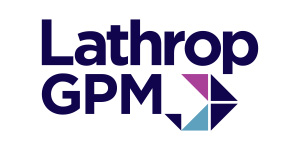
 June 26, 2024 14:40
June 26, 2024 14:40
By: Phillip D. Zamore, RTI, UMass Chan Medical School
 June 26, 2024 14:45
June 26, 2024 14:45
Session Chair: Jesse Lehman , RTI, UMass Chan
 June 26, 2024 15:30
June 26, 2024 15:30
Jennifer Doudna

 June 26, 2024 16:30
June 26, 2024 16:30
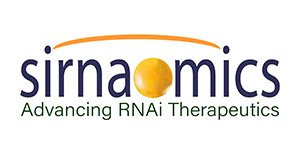
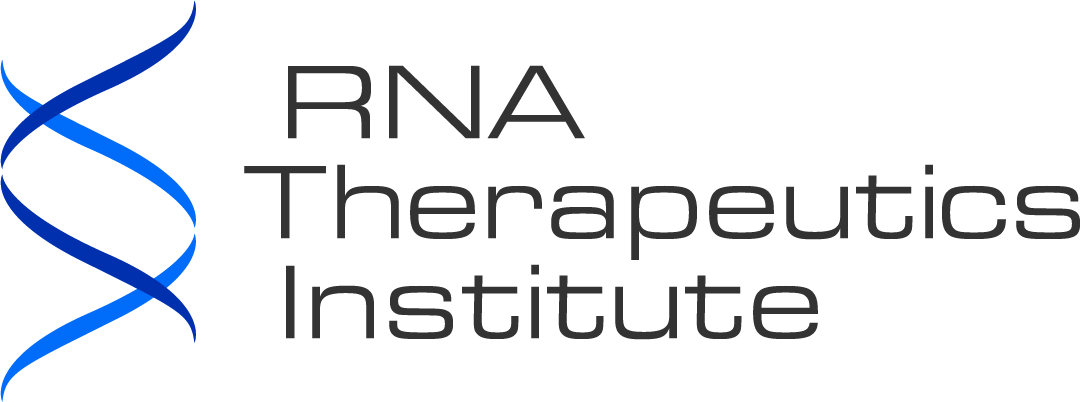
 June 27, 2024 07:45
June 27, 2024 07:45

 June 27, 2024 08:50
June 27, 2024 08:50
Session Chairs: Humberto Ochoa & Wendy Tan, RTI, UMass Chan
 June 27, 2024 08:50
June 27, 2024 08:50
By: Phillip D. Zamore, RTI, UMass Chan Medical School
 June 27, 2024 08:55
June 27, 2024 08:55
Angela Brooks

 June 27, 2024 09:25
June 27, 2024 09:25
Blanton Tolbert

 June 27, 2024 09:55
June 27, 2024 09:55
Alberto Kornblihtt



 June 27, 2024 10:20
June 27, 2024 10:20

 June 27, 2024 10:55
June 27, 2024 10:55
Session Chairs: Anarkali Mahmood & Youwei Qiao, RTI, UMass Chan
 June 27, 2024 10:55
June 27, 2024 10:55
Morgan Maeder

 June 27, 2024 11:25
June 27, 2024 11:25
Kiran Musunuru

 June 27, 2024 11:55
June 27, 2024 11:55
Omar Abudayyeh

Jonathan Gootenberg

 June 27, 2024 12:25
June 27, 2024 12:25

 June 27, 2024 13:30
June 27, 2024 13:30
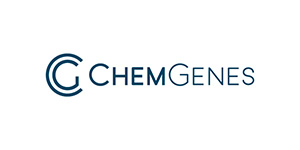
 June 27, 2024 15:00
June 27, 2024 15:00
Session Chairs: Sasha-Kay Clarke & Grace Schiefelbein, RTI, UMass Chan
 June 27, 2024 15:00
June 27, 2024 15:00
By: Jitendra K. Meena , Baylor College of Medicine
 June 27, 2024 15:15
June 27, 2024 15:15
By: Milky Abajorga , UMass Chan Medical School
 June 27, 2024 15:30
June 27, 2024 15:30
By: Jun Wang, mRNA Center of Excellence, Sanofi Pasteur Inc
 June 27, 2024 15:45
June 27, 2024 15:45
By: Anna Loveland, RTI, UMass Chan Medical School
 June 27, 2024 16:00
June 27, 2024 16:00
Session Chairs: Seden Bedir & Kexin Zhang, RTI, UMass Chan
 June 27, 2024 16:00
June 27, 2024 16:00
Andrea Kasinski
Purdue University

 June 27, 2024 16:30
June 27, 2024 16:30
Saumya Das
MGH

 June 27, 2024 17:00
June 27, 2024 17:00
By: Dmitry Kretov, Boston University
 June 27, 2024 18:00
June 27, 2024 18:00
ticket required

 June 28, 2024 07:45
June 28, 2024 07:45
ticket required

 June 28, 2024 09:00
June 28, 2024 09:00
Session Chairs: Jillian Belgrad & Veronica Nikolaki RTI, UMass Chan
 June 28, 2024 09:00
June 28, 2024 09:00
Sonia Vallabh
Broad Institute

 June 28, 2024 09:30
June 28, 2024 09:30
Steve Dowdy
UC San Diego

 June 28, 2024 10:00
June 28, 2024 10:00
Ken Yamada
RTI, UMass Chan Medical School

 June 28, 2024 10:30
June 28, 2024 10:30
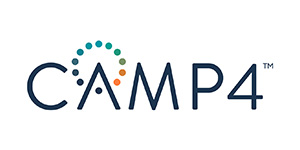
 June 28, 2024 11:05
June 28, 2024 11:05
By: Dhrubajyoti Datta, Alnylam Pharmaceuticals
 June 28, 2024 11:20
June 28, 2024 11:20
Maire Jung
Eli Lilly

 June 28, 2024 11:50
June 28, 2024 11:50
By: Joshua E. McGee, Boston University


 June 28, 2024 12:05
June 28, 2024 12:05

 June 28, 2024 13:00
June 28, 2024 13:00

 June 28, 2024 14:30
June 28, 2024 14:30
Session Chairs: Emily Sholi & Yujie Chen RTI, UMass Chan
 June 28, 2024 14:30
June 28, 2024 14:30
Dee Datta
Switch Therapeutics

 June 28, 2024 15:00
June 28, 2024 15:00
Lorna Harries
SENISCA, University of Exeter

 June 28, 2024 15:30
June 28, 2024 15:30
Serena Silver
Accent Therapeutics

 June 28, 2024 16:00
June 28, 2024 16:00
Caroline Kohrer
Alltrna

 June 28, 2024 16:30
June 28, 2024 16:30
By: Sandra Smieszek, Vanda Pharmaceuticals Inc
 June 28, 2024 16:45
June 28, 2024 16:45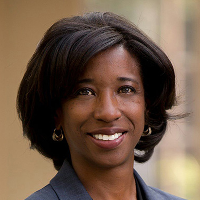
Tracy Johnson
UC Los Angeles

 June 28, 2024 17:35
June 28, 2024 17:35











